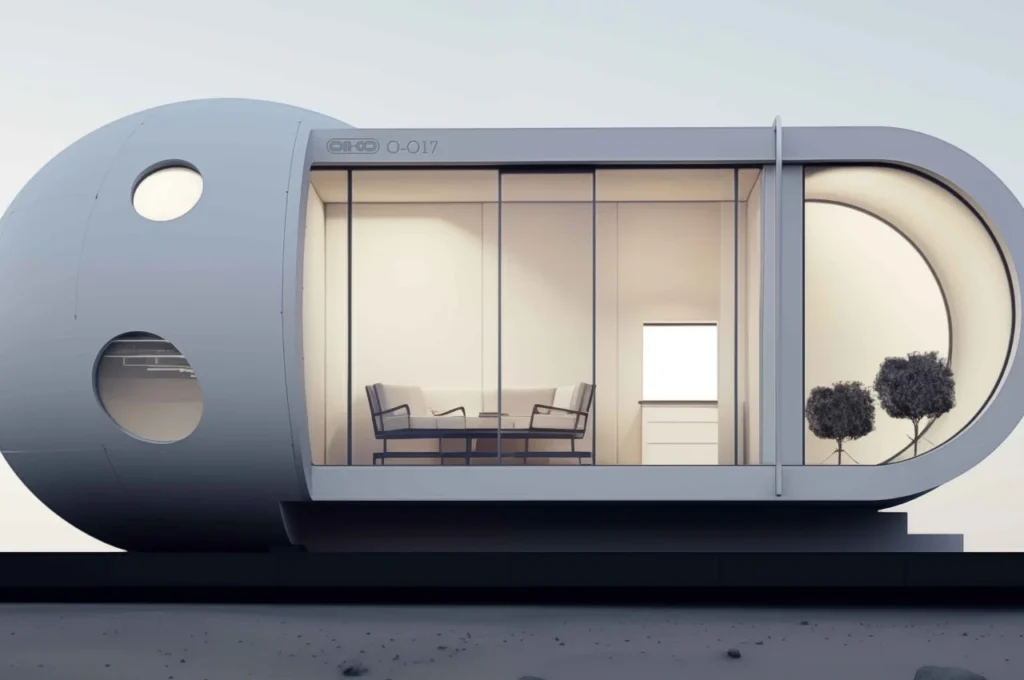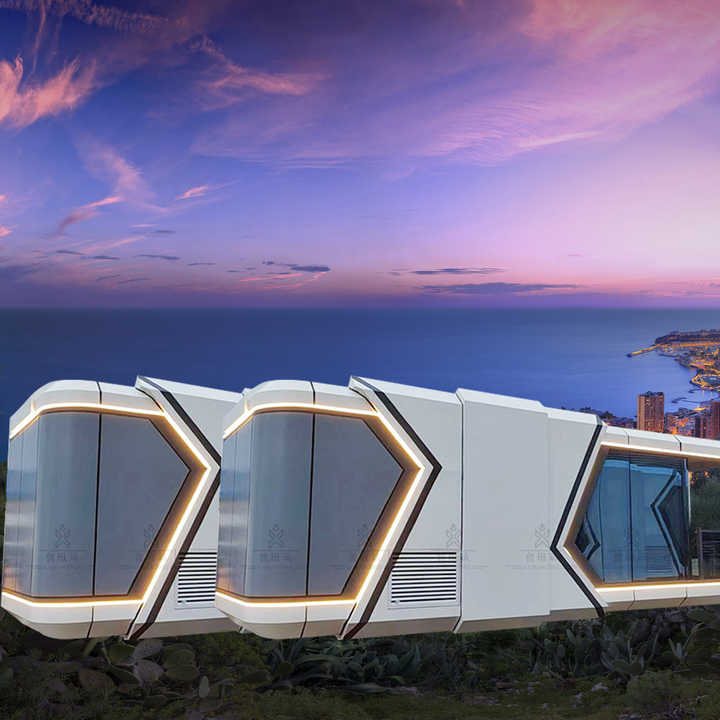How Capsule Houses Offer an Affordable and Efficient Housing Solution
How Capsule Houses Offer an Affordable and Efficient Housing Solution
Blog Article
Why Modular Residences Are the Future of Sustainable Living
Modular homes are increasingly acknowledged as a pivotal option for sustainable living, supplying a blend of effectiveness, cost-effectiveness, and environmental advantages. Their building in regulated environments significantly lowers waste and enhances accuracy, while the potential for including sophisticated energy-efficient systems positions them as a forward-thinking option in real estate. The adaptability of modular layouts allows for the combination of lasting modern technologies and products customized to individual requirements. As we navigate the challenges of urbanization and environmental sustainability, one need to consider just how these homes could redefine our method to living areas.
Ecological Benefits of Modular Houses
The environmental advantages of modular homes represent a considerable action towards lasting living. These homes are created in controlled manufacturing facility setups, which considerably decreases waste generated throughout the structure procedure. By enhancing materials and reducing excess, modular building and construction adds to an extra reliable usage of sources compared to traditional structure approaches.
In addition, modular homes are frequently developed with energy efficiency in mind. Many include advanced insulation techniques, energy-efficient home windows, and lasting materials, adding to reduced energy usage. This can lead to decreased greenhouse gas exhausts over the life expectancy of the home, improving its overall ecological account.
The capability to transport and construct modular elements on-site likewise reduces the carbon impact associated with building logistics. Many modular homes are built to be adaptable and quickly upgradeable, enabling property owners to implement lasting technologies, such as solar panels and energy-efficient home heating systems, over time.
Ultimately, the environmental benefits of modular homes not just promote sustainable living but likewise motivate a more liable approach to housing growth, aligning with global efforts to deal with environment adjustment and protect natural deposits for future generations.
Cost-Effectiveness and Affordability
Building a home commonly represents among the biggest monetary investments people make in their life time, and modular homes provide an engaging remedy for those looking for cost-effectiveness and affordability. One of the key benefits of modular homes is their reduced construction costs compared to typical site-built homes. The streamlined manufacturing procedure enables significant financial savings on labor and materials, which equates to decrease costs for consumers.
Additionally, modular homes commonly have much shorter building timelines. This not just minimizes expenditures connected to financing and insurance coverage however likewise alleviates the threats connected with rising cost of living and changing market problems. Many buyers locate that modular homes can be personalized to fit their budget plans without sacrificing quality or design.
Additionally, energy effectiveness is often built into the style of modular homes, leading to decreased utility costs in time. Several makers prioritize sustainable products and practices, additionally improving the long-term economic feasibility of these homes. On the whole, the combination of first expense savings, quick building, and continuous energy performance makes modular homes an appealing option for those looking to purchase lasting living without breaking the bank.
Effectiveness in Building
Modular homes not just provide economic advantages yet also master building and construction effectiveness. The modular structure process involves the simultaneous building and construction of modules in a manufacturing facility setting while site preparation takes place simultaneously. This parallel technique dramatically lowers the overall timeline from fertilization to completion, commonly cutting building time by approximately half compared to typical methods.
Additionally, factory-controlled environments improve top quality assurance. By using precision production techniques, modular homes are developed to specific specifications, lessening waste and mistakes. This consistency not only causes a greater quality product yet additionally adds to sustainable methods by lowering material waste during building.
Furthermore, using modern technology and automation in the manufacturing procedure enables quicker setting up and reduced labor costs. When the modules are delivered to the website, they can be efficiently assembled, even more accelerating click to find out more the timeline. This structured procedure is not just valuable for contractors but likewise lessens disturbances to the surrounding setting throughout building and construction.
Modification and Layout Flexibility
An impressive variety of personalization alternatives differentiates modular homes, allowing property owners to tailor their space to fulfill certain requirements and preferences. This design adaptability is a characteristic of modular building and construction, enabling clients to choose whatever from layout and area layouts to coatings and components. Unlike conventional homes, modular designs facilitate a joint approach where designers and home builders function carefully with homeowners, making sure that each i thought about this aspect straightens with specific way of lives and visual needs.
Furthermore, modular homes can be quickly reconfigured or expanded, suiting altering family characteristics or evolving individual tastes. This flexibility not only boosts the home's capability yet likewise adds to long-lasting sustainability, as homeowners can modify their rooms as opposed to look for new real estate services.

Future Trends in Lasting Real Estate
Emerging fads in sustainable real estate are reshaping the landscape of domestic building, emphasizing innovative modern technologies and environment-friendly techniques. One considerable fad is the integration of wise home modern technology, which improves power efficiency with automated systems that check and optimize energy consumption. This not just decreases energy prices however additionally visite site adds to a lower carbon impact.
In addition, the usage of sustainable materials is coming to be significantly common. Contractors are opting for reused, in your area sourced, or rapidly renewable materials, which lessen ecological effect and assistance local economic climates. Moreover, modular homes are obtaining appeal for their decreased waste throughout construction and their adaptability to various terrains and climates.
Another trend is the unification of environment-friendly roof coverings and living walls, which improve air top quality and offer all-natural insulation. These features also promote biodiversity in city areas.
Final Thought
Finally, modular homes become an essential option for lasting living, using substantial environmental advantages with minimized waste and power effectiveness. Their cost-effectiveness and cost attend to the expanding real estate demands in city areas, while effective construction processes improve general performance. The intrinsic customization and design versatility deal with varied preferences and demands. As trends in sustainable real estate develop, modular homes are poised to play a critical role in promoting environmentally friendly living practices for future generations.
Structure a home frequently represents one of the largest economic investments people make in their lifetime, and modular homes supply an engaging option for those looking for cost-effectiveness and affordability. One of the primary benefits of modular homes is their lower construction prices compared to conventional site-built homes. On the whole, the combination of preliminary cost savings, fast building, and ongoing energy efficiency makes modular homes an attractive alternative for those looking to spend in sustainable living without breaking the bank.
Inevitably, the personalization and style adaptability supplied by modular homes make certain that they are not simply frameworks, however customized havens that reflect the unique identities of their owners while advertising lasting living techniques.

Report this page